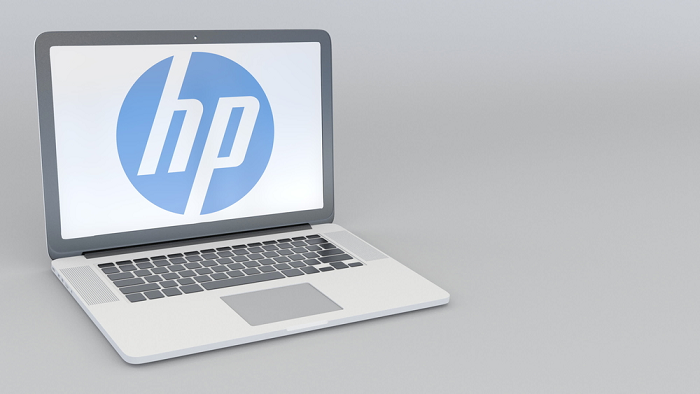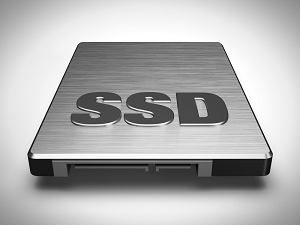 Many people in the market for a new laptop overlook the benefits of buying a previously owned commercial grade one. It is logical to zero in on new laptops and compare price and reliability. However, RB’s Computer Services sells previously owned commercial grade Lenovo HP and some Dell laptops that truly give brand new laptops a run for the money in both price and reliability, with some added incentives. In this blog I’ll share 7 benefits to buying a previously owned commercial grade laptop from RB’s Computer Service. Prices Starting at $350
Many people in the market for a new laptop overlook the benefits of buying a previously owned commercial grade one. It is logical to zero in on new laptops and compare price and reliability. However, RB’s Computer Services sells previously owned commercial grade Lenovo HP and some Dell laptops that truly give brand new laptops a run for the money in both price and reliability, with some added incentives. In this blog I’ll share 7 benefits to buying a previously owned commercial grade laptop from RB’s Computer Service. Prices Starting at $350 Most of our previously owned Dell, Lenovo, and HP computers start at $350. In additions to price, some added benefits include:
Most of our previously owned Dell, Lenovo, and HP computers start at $350. In additions to price, some added benefits include:
- Our laptops are commercial units not consumer scaled down units.
- Many laptops we supply have docking port options so that you can purchase a dock and use this laptop as a regular replacement for a tower.
- All laptops are data scrubbed before we sell them.
- Because we sell commercial grade laptops, they are not pre-loaded with junk software.
Warranty All of our laptop come with a 30 day warranty.  Very Fast Laptops Almost all of the laptops we sell come with Solid State Drives (Learn more about SSD) in them. Windows 10 Included Our laptops come with Windows 10 Pro version vs Windows 10 “Home” version installed. For many Windows 7 users, upgrading to Windows 10 was a hassle. But with our laptops, Windows 10 Pro is included to avoid the hassle. We also offer options to set up Microsoft Office 365. Good for the Environment Buying a previously owned commercial grade laptop offers a two for one benefit for the environment. On the one hand, a perfectly good laptop is being placed back into service when you buy it instead of being destroyed, and RB’s Computer Service will recycle your old desktops, towers, and laptops for FREE! *Other items will be charged a minimal fee if you want data destroyed.*
Very Fast Laptops Almost all of the laptops we sell come with Solid State Drives (Learn more about SSD) in them. Windows 10 Included Our laptops come with Windows 10 Pro version vs Windows 10 “Home” version installed. For many Windows 7 users, upgrading to Windows 10 was a hassle. But with our laptops, Windows 10 Pro is included to avoid the hassle. We also offer options to set up Microsoft Office 365. Good for the Environment Buying a previously owned commercial grade laptop offers a two for one benefit for the environment. On the one hand, a perfectly good laptop is being placed back into service when you buy it instead of being destroyed, and RB’s Computer Service will recycle your old desktops, towers, and laptops for FREE! *Other items will be charged a minimal fee if you want data destroyed.* Potential Tax Deduction & Back to School Back to School will be here before you know it. A previously owned commercial grade laptop might be a perfect gift to get your student off to a good start this year. MN Department of Revenue Education Tax Credit An educational computer and the software required to run applications can be claimed (up to $200,* to see full details visit https://www.revenue.state.mn.us/k-12-education-subtraction-and-credit. Minnesota has two programs to help pay for your child’s education expenses. The K-12 Education Subtraction and the K-12 Education Credit can lower the tax you pay or increase your refund when filing your Minnesota income tax return. SAVE YOUR RECEIPTS. Both of these programs allow for the computer tax credit. For most student’s computer needs, subtract the tax credit from a $350 computer, and your cost would be about $150. That’s a bargain most parents can jump at.
Potential Tax Deduction & Back to School Back to School will be here before you know it. A previously owned commercial grade laptop might be a perfect gift to get your student off to a good start this year. MN Department of Revenue Education Tax Credit An educational computer and the software required to run applications can be claimed (up to $200,* to see full details visit https://www.revenue.state.mn.us/k-12-education-subtraction-and-credit. Minnesota has two programs to help pay for your child’s education expenses. The K-12 Education Subtraction and the K-12 Education Credit can lower the tax you pay or increase your refund when filing your Minnesota income tax return. SAVE YOUR RECEIPTS. Both of these programs allow for the computer tax credit. For most student’s computer needs, subtract the tax credit from a $350 computer, and your cost would be about $150. That’s a bargain most parents can jump at.  September 15th (3rd Quarterly Tax Filings) is coming soon. September 15th is an important federal tax deadline. For corporations that obtained a tax extension earlier this year, this is the deadline to file your 2018 tax return. 3rd quarterly estimated tax payment for 2019 is also due by this date. We are not accountants or CPA’s and are not offering any tax advice, but if you need a new computer and a tax deduction, using the purchase of a new computer as a write off might be a great idea to pose to your accountant or CPA. If you are still sitting on the fence after considering the 7 benefits of buying a previously owned commercial grade laptop from RB’s Computer Service, don’t hesitate to contact us today to explore your options via phone or email: 763-441-3884 or at help@rbsmn.com. If you are more of a desktop person versus laptop fan, we have similar options with our previously owned towers and desktops, starting at about $350. Alternatively, you could custom build your next computer. You might be pleasantly surprised how affordable this option is. In addition to previously owned laptops and desktops, RB’s Computer Service offers Ransomware strategies, managed IT services, and virus and malware removal services. We sell the best commercial grade firewall routers, best laptop computers, best desktop computers, business computers, computer parts, and computer monitors. We provide iPhone and smartphone repair, and tablet repairs to customers and clients throughout central Minnesota and St. Cloud.
September 15th (3rd Quarterly Tax Filings) is coming soon. September 15th is an important federal tax deadline. For corporations that obtained a tax extension earlier this year, this is the deadline to file your 2018 tax return. 3rd quarterly estimated tax payment for 2019 is also due by this date. We are not accountants or CPA’s and are not offering any tax advice, but if you need a new computer and a tax deduction, using the purchase of a new computer as a write off might be a great idea to pose to your accountant or CPA. If you are still sitting on the fence after considering the 7 benefits of buying a previously owned commercial grade laptop from RB’s Computer Service, don’t hesitate to contact us today to explore your options via phone or email: 763-441-3884 or at help@rbsmn.com. If you are more of a desktop person versus laptop fan, we have similar options with our previously owned towers and desktops, starting at about $350. Alternatively, you could custom build your next computer. You might be pleasantly surprised how affordable this option is. In addition to previously owned laptops and desktops, RB’s Computer Service offers Ransomware strategies, managed IT services, and virus and malware removal services. We sell the best commercial grade firewall routers, best laptop computers, best desktop computers, business computers, computer parts, and computer monitors. We provide iPhone and smartphone repair, and tablet repairs to customers and clients throughout central Minnesota and St. Cloud.
